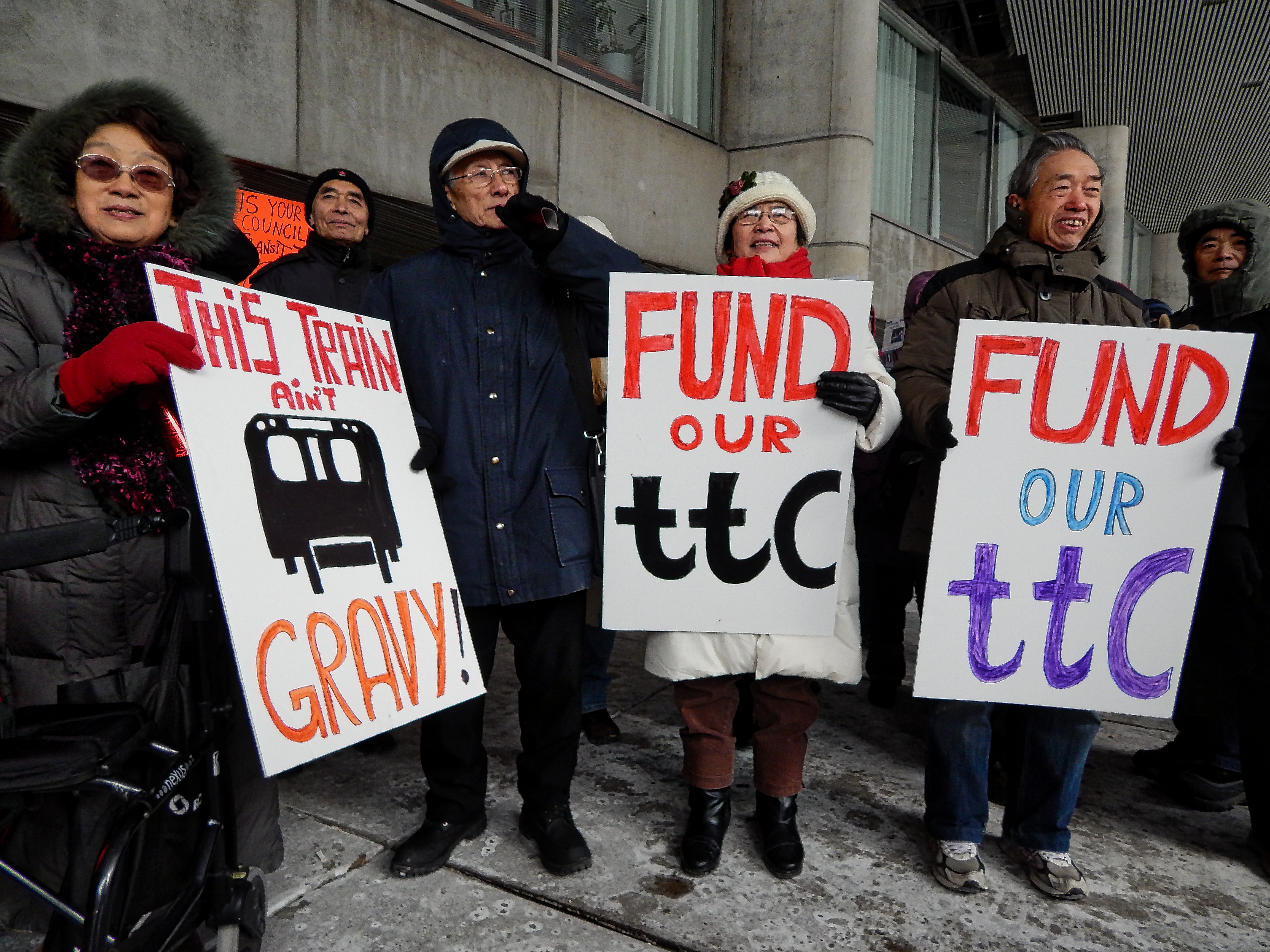More funding for public transit in Toronto.
That was the message TTCriders brought to City Hall during a lunch hour rally on Wednesday afternoon as City Council deliberated the 2014 budget.
More funding for the least publicly subsidized transit system in North America, according to TTCriders, a grassroots, membership based TTC users group, advocating for an affordable world-class public transit system for Toronto.
“We won’t stand for it anymore,” said Kamilla Pietrzyk, a TTCriders member, referring to the exorbitant fares.
Established in 2010, TTCriders is a coalition of organizations, including the Toronto Environmental Alliance, Social Planning Toronto, the Toronto & York Region Labour Council, ACORN, and the Canadian Federation of Students.
“TTC fares are too high,” said Jennifer Huang, another TTCriders member.
On January 1, the price of a regular monthly pass increased by $5 to $133.75, a token by $0.05 to $2.70. Cash fare remained at $3.00.
“That is too high for all of the people in Toronto. Until 1995, the province gave the TTC 50 per cent of its operating budget. Toronto has the highest fare box ratio. Seventy per cent of our fares goes into operations.
“And that is not acceptable.”
TTCriders wants the City to go back to the 2010 subsidy levels, which would mean pouring another $70 million into the TTC budget.
“The TTC’s subsidy per rider — meaning how much the city pays for each trip you take on the TTC — remains the lowest for public transit in North American cities at just 78 cents,” said Richard White, Transit Toronto, in his November 20, 2013 story.
In other major urban centres, it’s at least $1.00 per ride, according to Transit Toronto.
TTCriders also wants the province to restore the 50 per cent subsidy.
They say a $700 million annual contribution from the province would result in an overall increase in service by at least 25 per cent, a single fare reduction of $0.20 for the general population and deeper discounts for for low income workers and social assistance recipients.
Culminating, they say, in reduced gridlock, cleaner air and a better public transit system.
Cheaper too. Particularly for those on a fixed income.
“In lots of countries around the world, seniors take public transit for free or low cost,” said Helen Liu, Ontario Chinese Seniors’ Association.
“But in Toronto we still pay more than $100 for a monthly Metropass. That’s way too much for us.”
On January 1, the price of a senior monthly Metropass increased to $108, to $98 for Monthly Discount Plan Metropass users. Cash fare remained at $2.
Leaving seniors, said Liu, with three options. Eat less. Stay home. Or walk.
“For lots of seniors, the walking in the winter is very dangerous,” she said. “We have lots of accidents.”
Even if people can afford the fares, many riders are faced with long commuting times when three or four buses or streetcars pass them by before one that has some space pulls up at their stop.
“In Scarborough, everything is really spread out,” said Brenda Thompson, Scarborough Transit Action.
“You have to take a bus to get to the grocery store. To go to the doctors. And chances are you’re going to have to walk across six lanes of traffic to get to the bus stop.”



